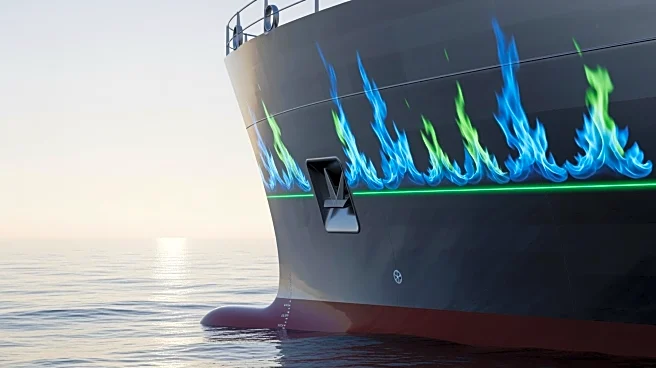What's Happening?
The Maritime Technologies Forum (MTF) has published new guidelines for conducting qualitative risk assessments for ships using alternative fuels. These guidelines address HAZID and HAZOP studies, detailing
the qualification requirements for personnel and procedural steps involved. The guidelines aim to support the identification of potential hazardous events and the development of preventive measures to manage risks associated with alternative fuels. This initiative aligns with the 2023 IMO Strategy on Reduction of GHG Emissions from Ships.
Why It's Important?
As the shipping industry increasingly adopts alternative fuels to reduce greenhouse gas emissions, ensuring safety is paramount. The guidelines provide a framework for assessing risks and implementing safety measures, which is crucial for gaining industry trust and regulatory approval. By standardizing risk assessments, the guidelines help ensure consistent safety outcomes across the industry, facilitating the transition to more sustainable maritime practices.
What's Next?
With the expected increase in alternative-fueled vessels, both newbuilds and retrofits, the guidelines will play a critical role in the approval process. Industry stakeholders will likely engage in discussions to refine and implement these guidelines effectively. The MTF's seminar on Safe Maritime Decarbonization highlighted the importance of these guidelines in ensuring transparency and trust.
Beyond the Headlines
The guidelines reflect a broader shift towards sustainable maritime practices and the need for comprehensive risk management strategies. They underscore the importance of collaboration between industry leaders and regulatory bodies to achieve decarbonization goals while maintaining safety standards.










